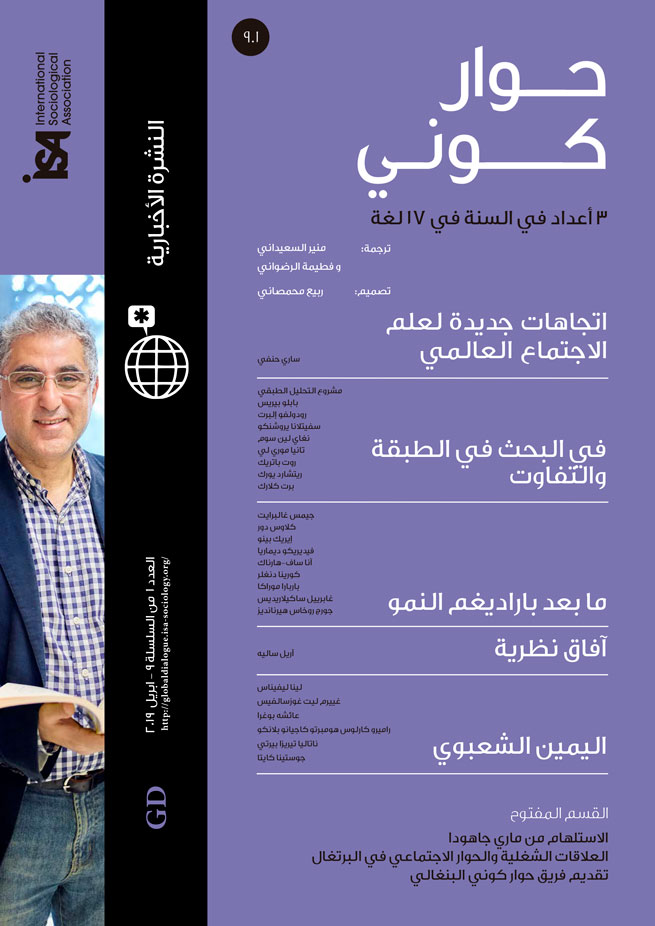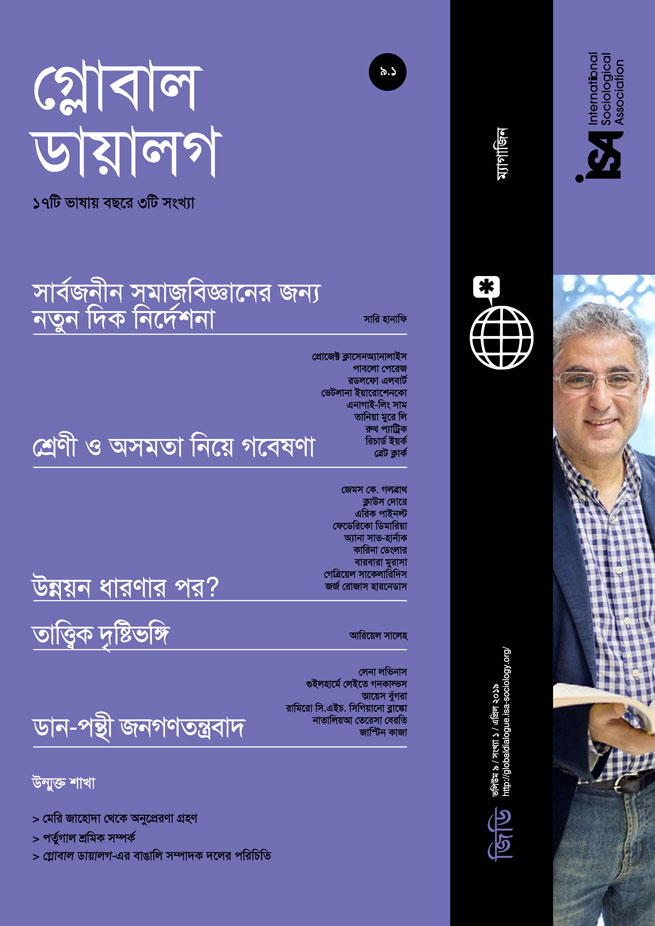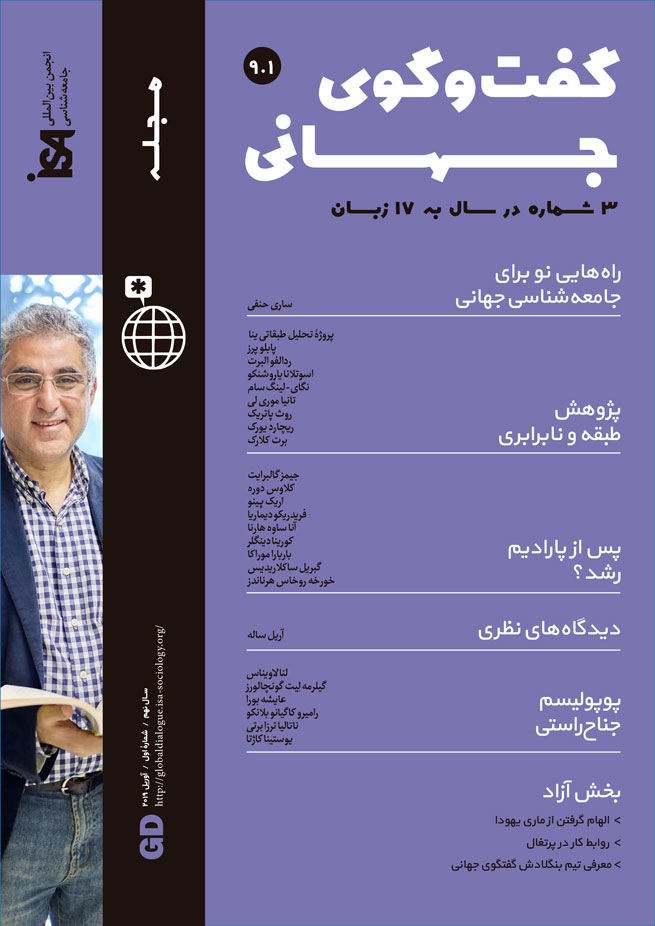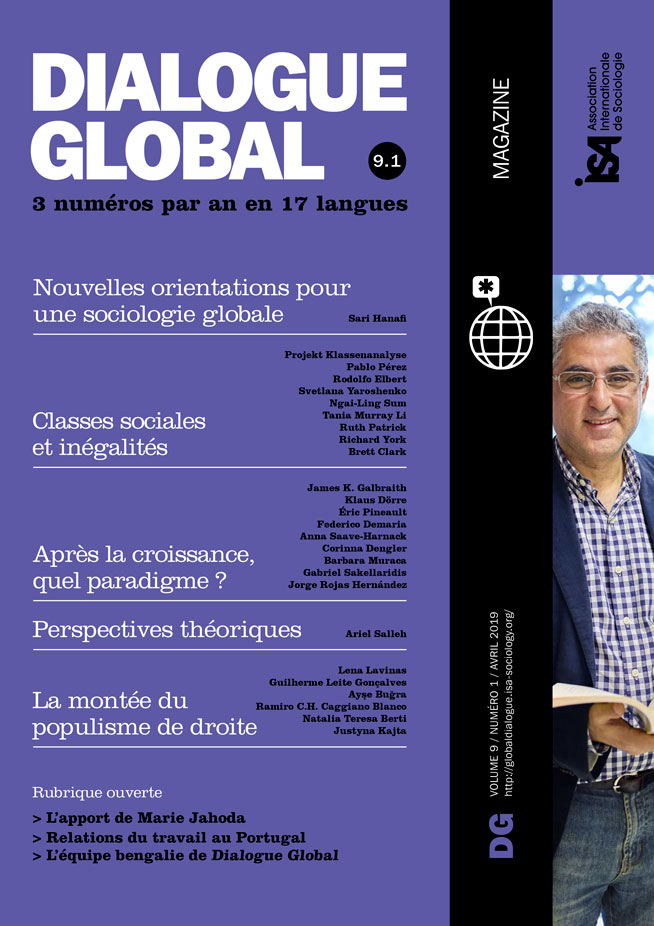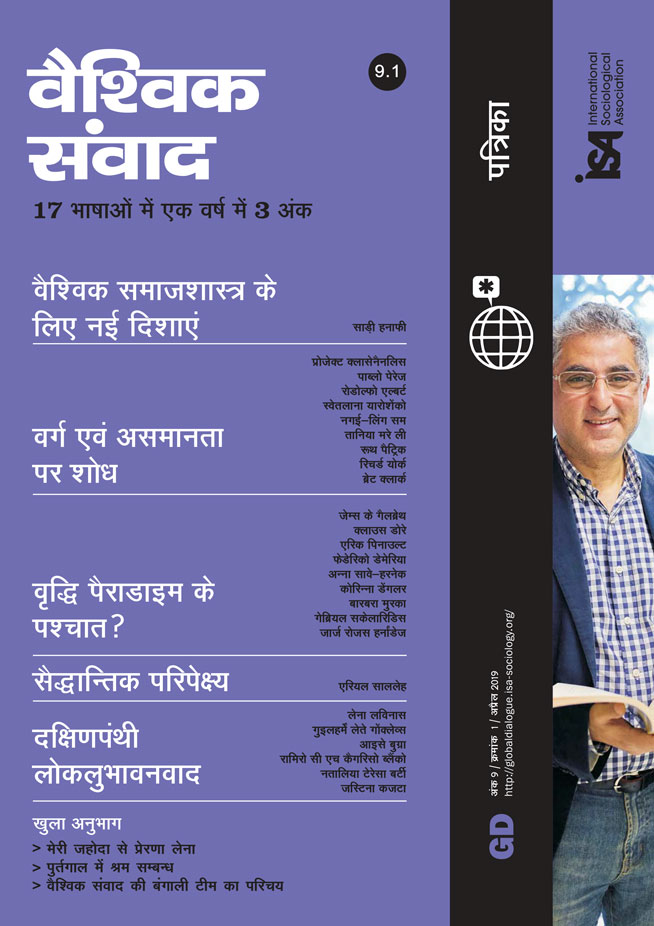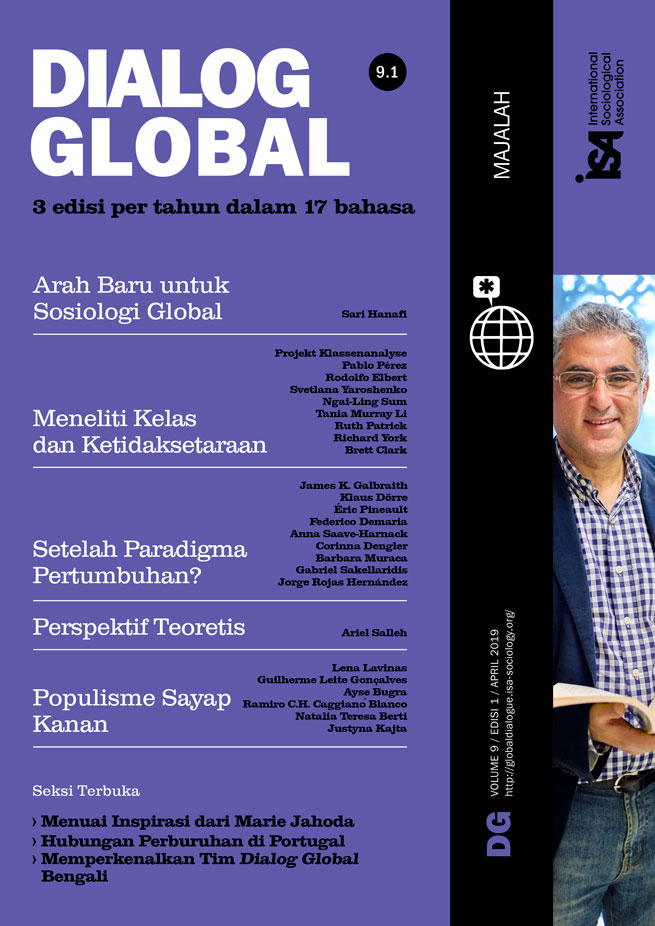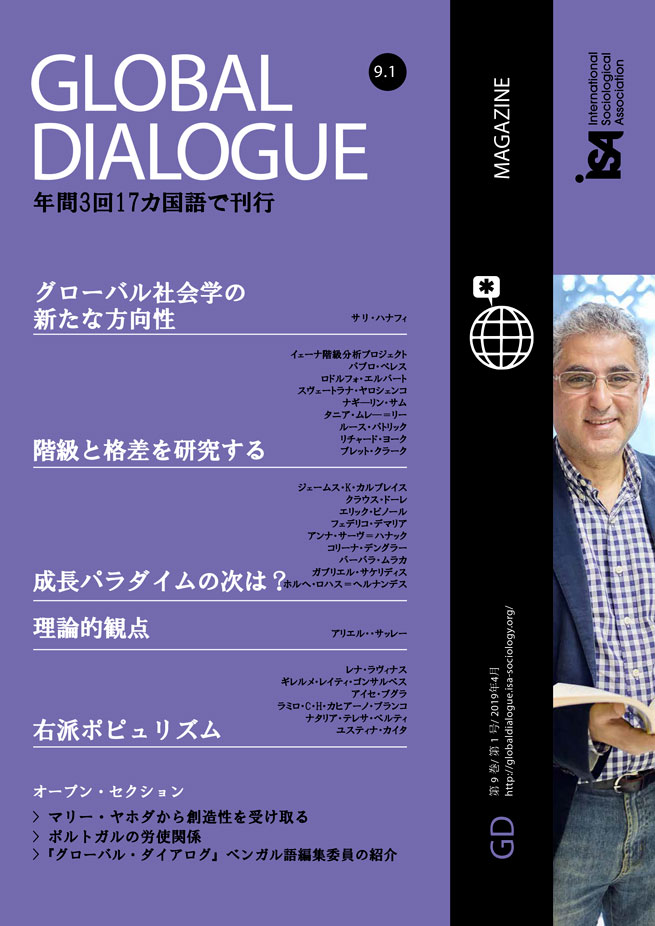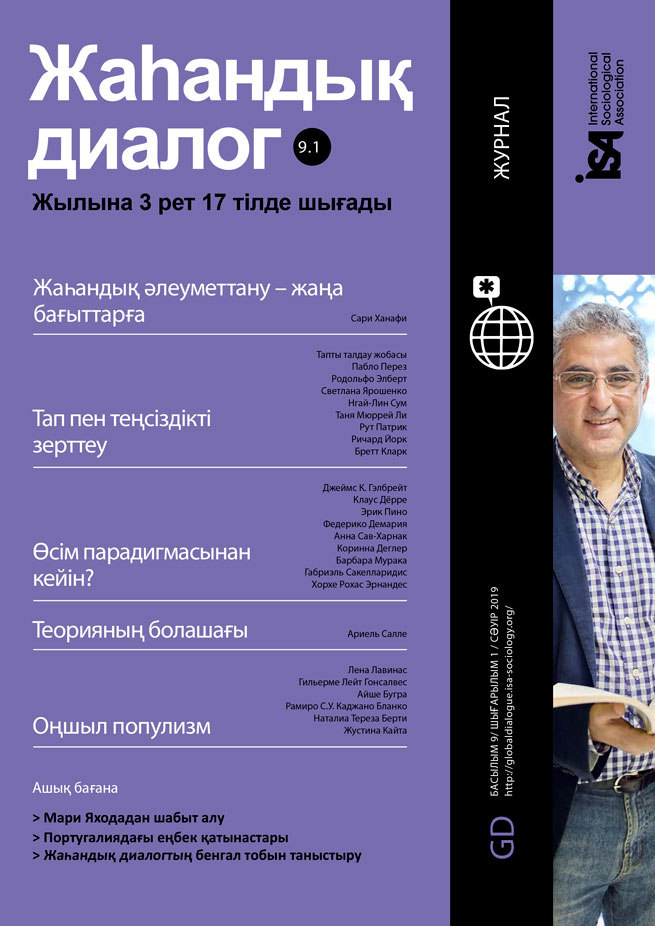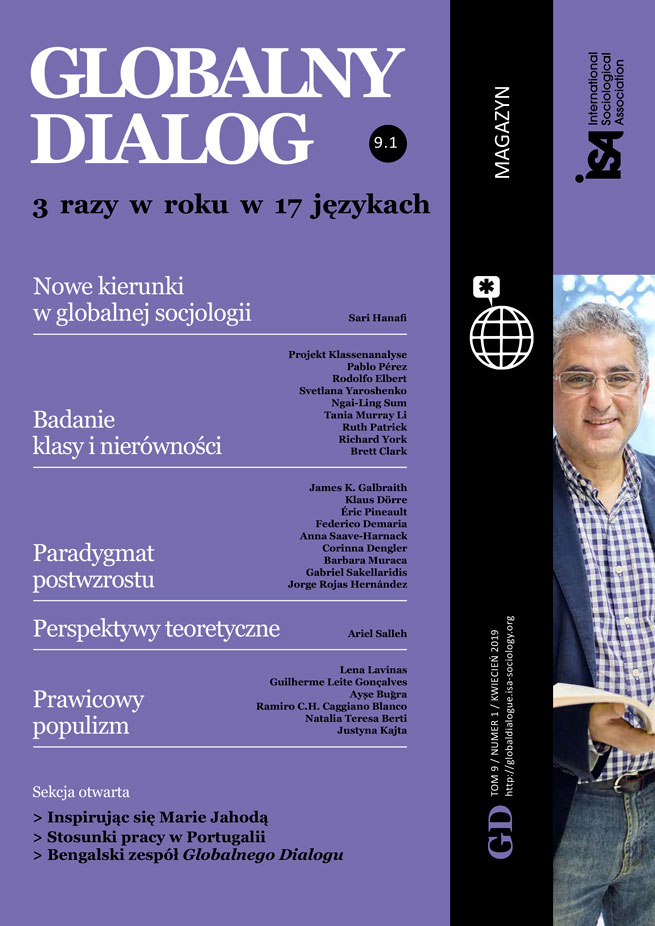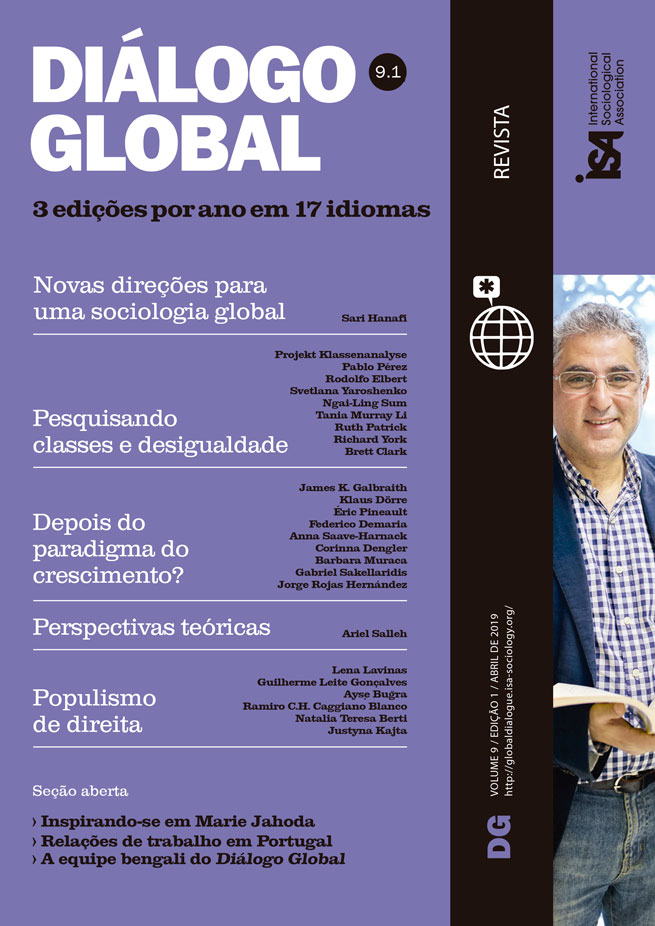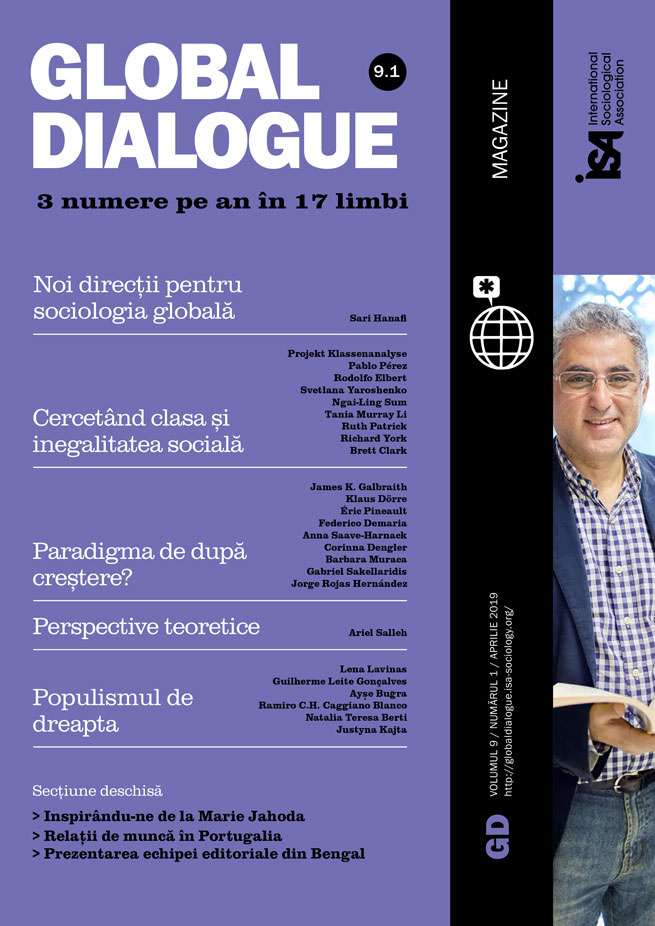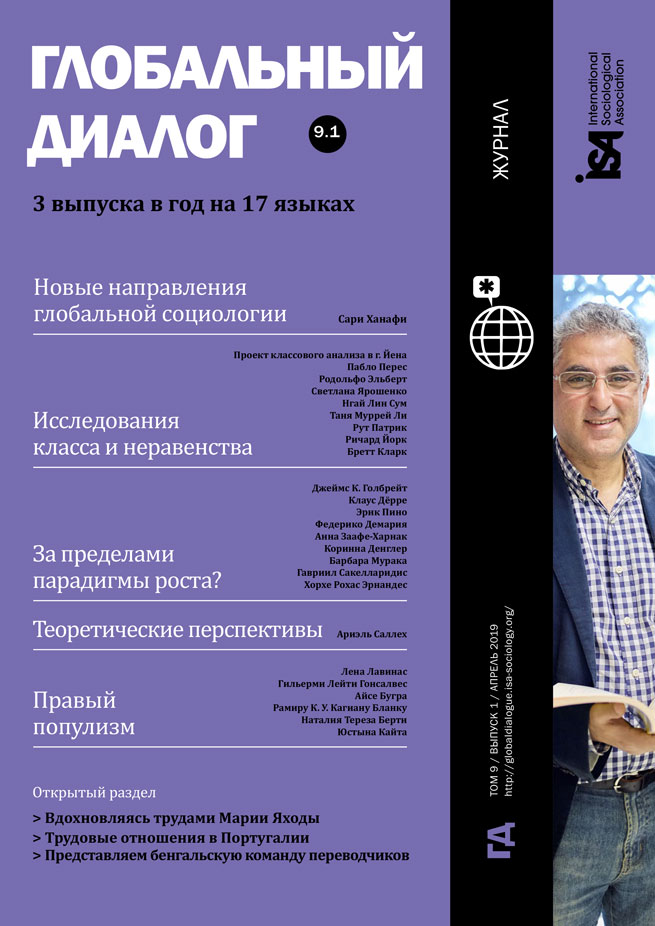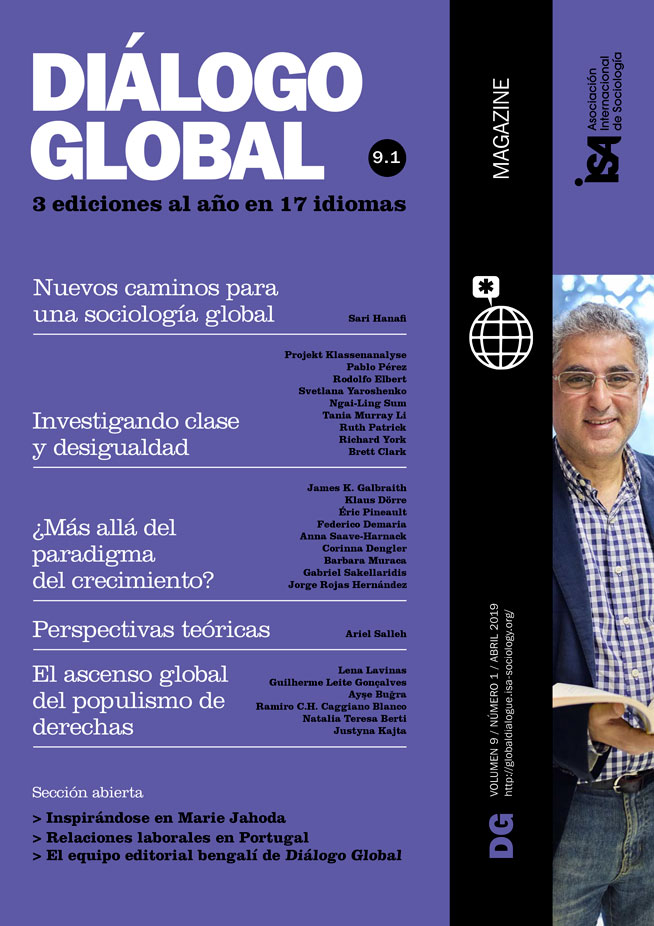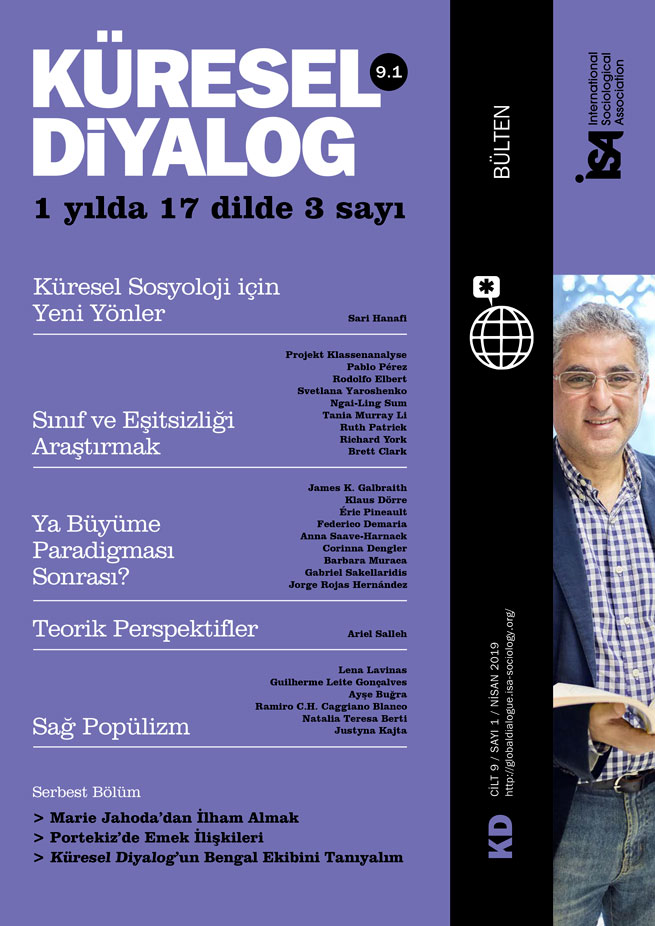Global Sociology – Toward New Directions
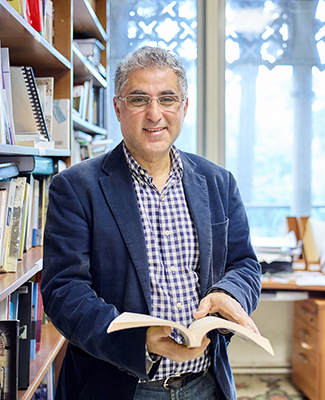
March 14, 2019
I was honored to be elected as the President of the International Sociological Association (ISA) during its congress in July 2018 in Toronto. In the following paragraphs I would like to outline the program that I introduced in my speech as a candidate for this position, and to highlight a three-point agenda concerning sociologies in dialogue, moving towards a post-authoritarian approach, and the current crisis in secularization theory.
Sociologies in dialogue
Among the twenty elected ISA Presidents, only two had come from outside Europe and North America, and I am the third. I come with specific sensitivities to sociology, influenced by my personal and professional trajectory as someone who did his university studies in Syria and then France, and worked in different academic institutions in Egypt, Palestine, France, and Lebanon. I have thus been surrounded by the myriad debates in these settings.
Because I am wary (very wary indeed) of antagonistic binary categories (such as tradition/modernity, East/West, universalism/contextualism, etc.), I propose various sociologies to always be in dialogue. Sociologies in Dialogue was in fact the title of the Fourth ISA Conference of the Council of National Associations, and is the forthcoming volume co-edited by Chin-Chun Yi and myself, to be published by SAGE. It is very important that some concepts in sociology claim universality, like human rights, but I see their universality as possible only through an overlapping cross-cultural consensus, and not by universalizing values coming from a Euro-American context. Let me bring an example of the concept of democracy. Is democracy universal? Yes, it is, but nor as a model to be exported, to echo Florent Guénard (2016), neither as a concept with telos, but as a historical experience that got its normativity from its spreading, especially since the 1980s in Latin America, then Eastern and Central Europe, and finally some countries of the Arab world. What is universal is, thus, an imaginary of desire for the democracy whose traces are in the slogans about liberty, justice, and dignity raised by demonstrators. This normative universalism is light and does not preclude the existence of what Armando Salvatore described in 2016 as “different patterns of civility.”
However, as we don’t want to frame this debate as only about emancipation from the colonial condition and western knowledge production hegemony, the postcolonial approach is not sufficient to account for the problems of knowledge production. It should be supplemented by what I call a “post-authoritarian approach.” This means considering not only the impact of colonialism, but also the impact of local authoritarianism.
Towards a post-authoritarian approach
One cannot but acknowledge the scars of the colonial era. They are still present; they cripple some, and remind others of roads we dare not tread again. But postcolonial studies, which put so much emphasis on external factors and neglect local ones, can be both used and abused. The lexical kinship of post-authoritarian studies with post-colonialism means that the former could, by association, draw on a number of assumptions underpinning the latter category, especially in terms of power structures. However, this does not mean we have come to terms with authoritarianism, nor are we “post” this era.
Authoritarianism, in our conceptualization, is not simply the tendency of states to act undemocratically by deploying bureaucratic and police compulsion in social life. In this more descriptive rendering, all states are in some degree authoritarian. It is not the state where the sovereign deploys Carl Schmitt’s state of exception. We know that all states contain “moments” or tendencies of exception and authoritarian practice. Authoritarianism is rather the systematic removal of popular accountability or participation in the decisions of the state and a substantial centralization of executive power in a bureaucracy as Graham Harrison stated in 2018.
There are different levels of authoritarianism: one relates to a regime; another relates to a political-economic system; and a third is at the level of the individual.
Norbert Elias’ major idea in his famous The Civilizing Process is that societies evolve through a movement of regression of individual violence (the pacification of behaviors). However, we are witness these days to what Josepha Laroche called in 2017 “the return of the repressed” or what George Mosse coined in 1991 “brutalization,” to highlight the erosion of this civilizational movement. If state actors are the major players in the brutalization of society through the police and army apparatus, we also witness the increasing power of non-state actors. An example for me, as someone who has lived in Syria and Lebanon, is ISIS and other sectarian and interstitial actors that circumvent the state by deploying community solidarity. But one should also think of global non-state actors such as multinational companies, and financial markets that constitute what James Rosenau called in 1990 “sovereign-free actors”. However, non-state actors rarely operate without the consent and facilitation of state actors. ISIS would not be possible without the total closure of the political space by the Syrian ruling elite, or the highly sectarian Iraqi regime. State and non-state actors not only brutalize society, they also herald the brutalization of the world, of which today we are the witnesses and stakeholders. Worse, as in Syria, Libya, and Yemen, war causes a “brutalization of politics,” which means that politics becomes difficult without violence.
According to Laroche, this process of brutalization starts with the destruction of social ties and solidarity, leading to the othering and exclusion of groups like poor people and foreigners from the national community and enabling an everyday barbarism against them that eventually becomes generalized across society.
Neoliberal authoritarianism
The interaction of the economic and the political leads to the emergence of a peculiar politico-economic configuration that I term neoliberal authoritarianism. However, this new configuration is not merely a combinatory outcome, but rather the result of an articulation that in many respects alters both neoliberalism and authoritarian rule.
We know that neoliberalism has generated widespread social and economic injustice and impoverishment. However, what is quite new is the systematic and purposeful deployment of the state’s centralized and coercive power to generate capitalist transformation in societies in which a capitalist class is weak and not dominant. If classical capitalist society often generated a system of domination through a democratic political regime, this is not the case in many peripheral societies, and in Western ones where the capitalist class has become thinner and more heavily contested. The relation of social forces underpinning the state is not only shaped by class, as Nicos Poulantzas argued, but includes racial and gendered hierarchies shaped by processes of what Aníbal Quijano called the coloniality of power, articulated in different ways in time and space.
Authoritarian citizens
As a political system deployed by state actors and non-state actors, authoritarianism exists in correlation with authoritarian citizens. Authoritarian leaders stifle the imagination: they seek gray automatons that follow their commands rather than autonomous subjects with independent personalities. The mechanism of becoming an authoritarian citizen is not only pushed from above, but is produced in relationship to practical reasoning.
According to Maeve Cooke there are two interrelated components of authoritarian practical reasoning. First, there are authoritarian conceptions of knowledge. These restrict access to knowledge to a privileged group of people and assert a standpoint removed from the influences of history and context that guarantees the unconditional validity of claims to truth and rightness. Second, there are authoritarian conceptions of justification, which split off the validity of propositions and norms from the reasoning of the human subjects for whom they are proclaimed to be valid.
Some people, particularly the religious, or those who share one of these two components of authoritarian practical reasoning, are difficult to argue with in the public sphere. As the notion of citizen entails the political autonomy of each person, Maeve Cooke argues that citizens should have ethical autonomy. This autonomy rests on the intuition that the freedom of human beings consists of, by and large, the freedom to form and pursue their conceptions of the good on the basis of reasons that they are able to call their own. In the processes of revolution and counter-revolution in the Arab world, and in debates identifying democratic forces, attention is rarely given to the elite’s practical reasoning, with the emphasis almost exclusively being on the secularization paradigm. Secular forces were seen as systematically immune to the authoritarian practical reasoning while the political Islamic movements by definition operate with such reasoning. Of course this is simplistic, and needs to be scrutinized, as authoritarian citizens can be found among both these elite formations. This leads me to argue that secularization theory is in real crisis, and cannot account for the transformation of citizens’ relationships with religion.
Crisis in secularization theory
While secularization is still a very important pathway toward democracy and modernity, this process needs to be problematized on a post-secular basis in order to free it from some of its excesses and pathologies. In a recent conversation with Jim Spickard, President of ISA’s Research Committee on the Sociology of Religion (RC22), he admitted that sociology has historically embraced secularization theory, which sociologists such as David Martin, Manuel Vásquez, and himself have traced to the intellectual battle that early sociologists waged against reactionary religion in late nineteenth- and early twentieth-century France. For Peter Berger, this theory, which saw modernity as leading to a decline of religion, has been empirically falsified, and should be replaced by a nuanced theory of pluralism. The evolutionism that typified religion as “past” and sociology as “future” embedded the secularization thesis into our thinking. As a result, religion’s public revival in the 1980s and 1990s was quickly typified as “fundamentalist” and as “a reaction against modernity.” This evolving debate, according to Ulrike Popp-Baier, has been framed by three ideal typical meta-narratives. The first is a narrative of decline of religious affiliations, practices, and beliefs due to the dissemination of a scientific worldview. The second is a narrative of transformation, with arguments about “invisible religion,” “implicit religion,” “believing without belonging,” “vicarious religion,” “judicialization of religion,” and, in recent years increasingly prominently, “spirituality,” suggesting a metamorphosis of the social form of religion in the context of more general cultural and societal changes relating to individualization and subjectivization. The third is a narrative of rise, linking religious vitality to religious pluralism and a market of competing religious organizations; in the case of Islam, this rise is associated with radicalism, and even terrorism.
We need to go beyond the many clichés labeling some geographical regions as religious or secular to analyze the different intellectual traditions, popular religions, and institutional carriers that have produced the different forms of religion and religiosity in contemporary society. In sociological debate, it is important to discuss the place of religion in democracy and in the public sphere. Citizens cannot be asked to have a moral responsibility to justify their political convictions independently of their religious ones, as John Rawls does. Even within Habermas’ conception of pluralism, Rawls acknowledges the place of religion in the public sphere, and argues that religious communities must engage in hermeneutical self-reflection in order to develop an epistemic stance toward the claims of other religions and worldviews, toward secular knowledge, especially scientific expertise, and toward the priority of secular reasons in the political arena. But is it indeed possible to disentangle “religious” reasons from “secular” ones? Scholars such as Darren Walhof (2013) point out that “theology, politics and the identity of a religious community are all tied up with each other, as religious leaders and citizens apply and reformulate their theologies in new political contexts.”
However, the confluence of law, religion, politics, and society has had some problematic outcomes, such as sectarianism. In conflict-ridden areas, such as the Middle East, sectarianism is one of the major conflict dynamics, but is also a mechanism for shaping local identity through what Azmi Bishara called in 2017 “imagined sects.” By the same logic, Israel recently passed a law that proclaims that Jews have a unique right to national self-determination, while continuing its apartheid politics inside Israel and in the Palestinian territories.
With the surge of “illiberal democracies” and the assault of some well-founded democracies on civil rights and liberties, the ISA should capture the fears and feelings of so many people around the globe today. Hannah Arendt located the origin of totalitarianism in a combination of external factors (imperialism, crisis of multinational empires) and internal ones (anti-Semitism and racism). In the same vein, I believe the ISA needs to combine the analysis of colonialism and authoritarianism. It should lead a conversation around a new paradigm for religion and pluralism in an age of multiple modernities. This is only possible by constructing a more appropriate framework for understanding the mix of micro and macro dimensions that characterizes the global situation today, and by constructing, as in the title of Alatas’ and Sinha’s 2017 book, “sociological theory beyond the canon.”
Sari Hanafi, American University of Beirut, Lebanon, and President of the International Sociological Association (2018-2022) <sh41@aub.edu.lb>

